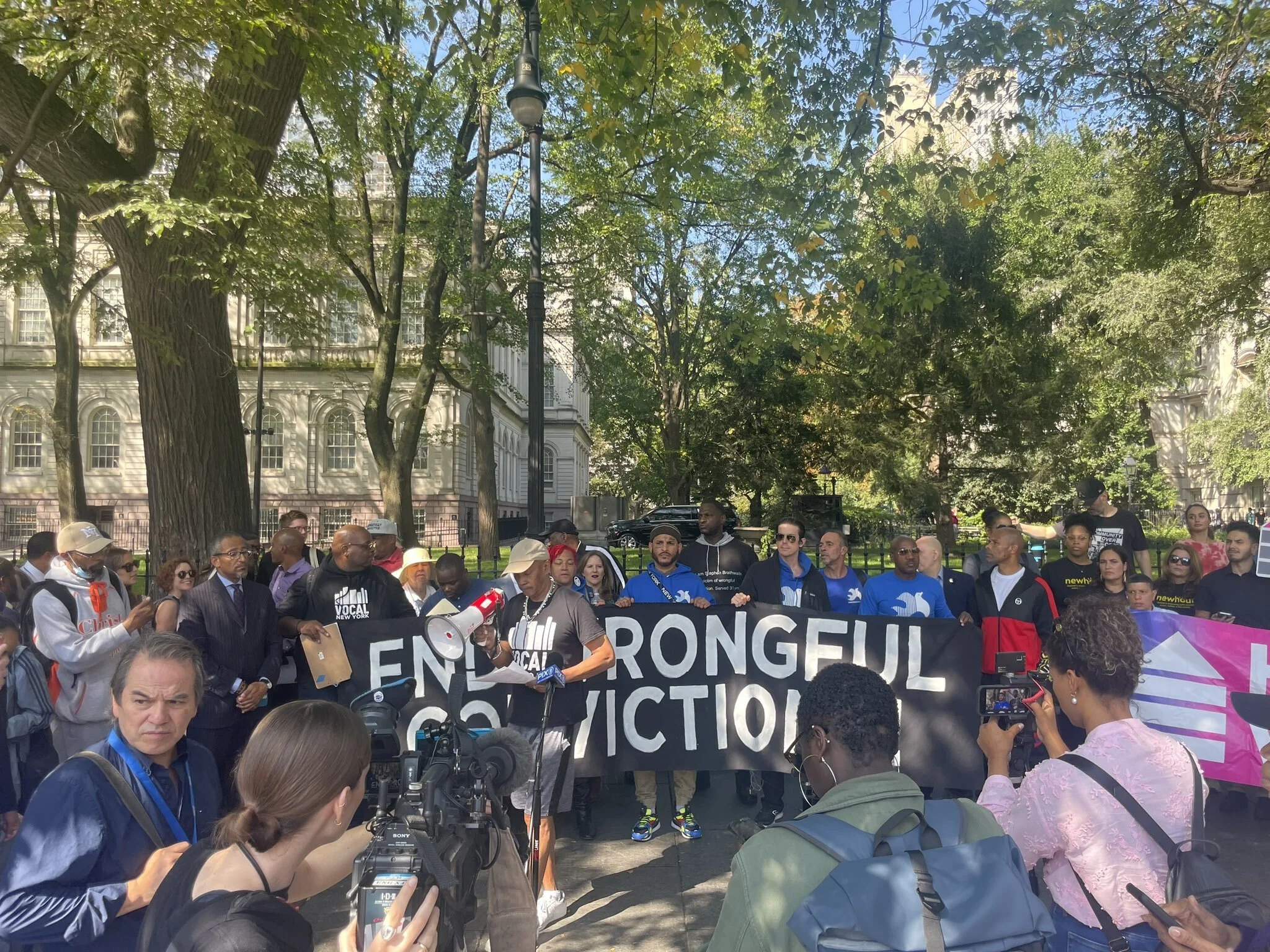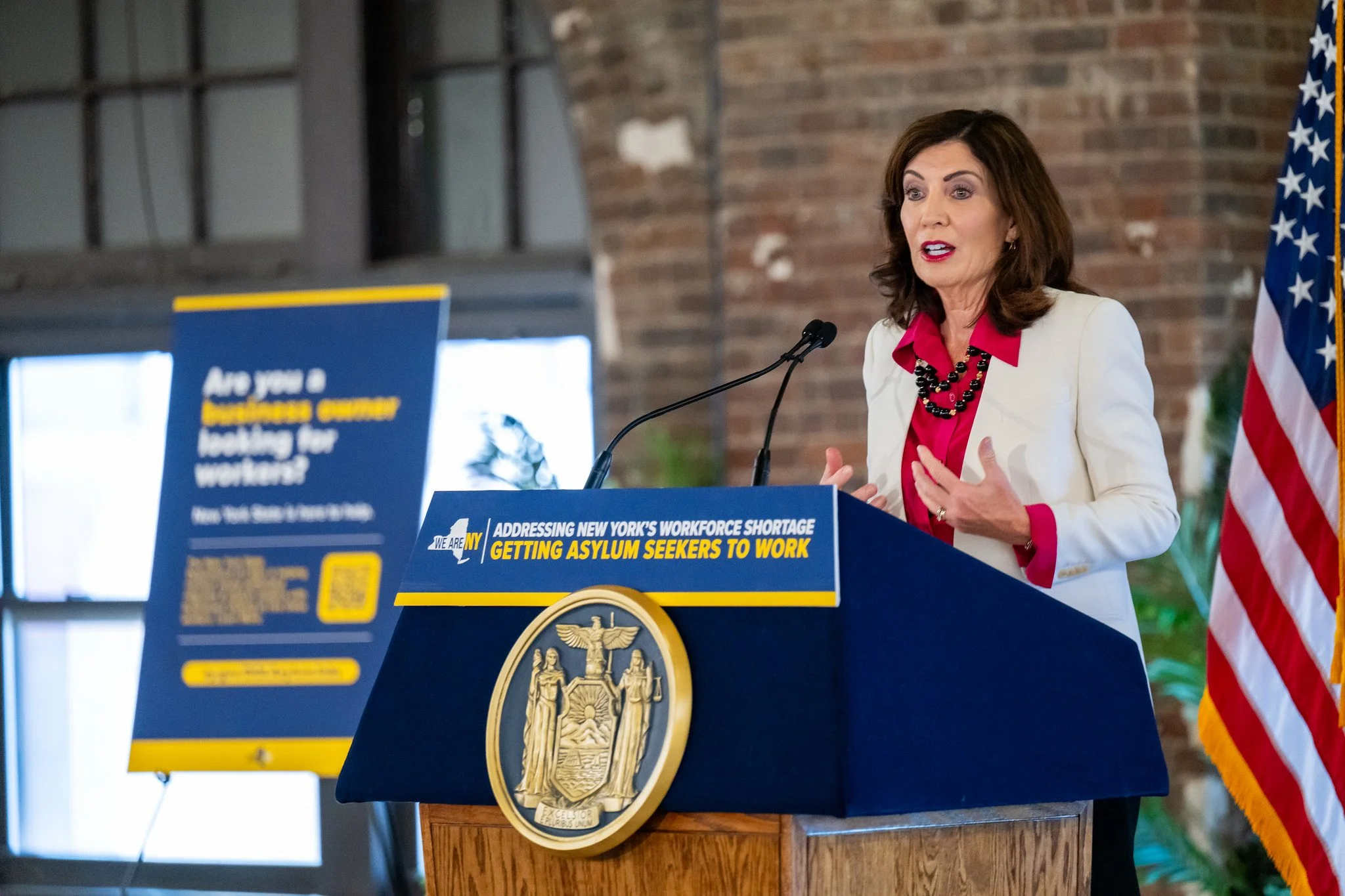Advocates call on gov to sign Challenging Wrongful Convictions Act
/Advocates and officials recognized International Wrongful Conviction Day at City Hall Park and continued calls for Governor Kathy Hochul to sign the Challenging Wrongful Convictions Act into law. Photo via Katal Center/Twitter
By Ryan Schwach
Monday was International Wrongful Conviction Day, and advocates and officials recognized the day of awareness at City Hall Park, continuing their call for Governor Kathy Hochul to sign the Challenging Wrongful Convictions Act into law.
This year marks the tenth year that Wrongful Conviction Day has been recognized and is a day meant to raise awareness of the causes of wrongful conviction and how to fix it.
“Today is a solemn day, because it's a recognition of too many brothers and sisters who are locked up in jails and prisons for something they didn't do,” said Stan German, the executive director of New York County Defenders Services. “We need to call this exoneration day.”
The Challenging Wrongful Convictions Act, which was passed by both bodies of the state legislature in June, currently sits on Hochul’s desk awaiting her signature. The bill would open up several pathways for wrongfully convicted New Yorkers to formally clear their name of their conviction in New York State, which has the third-highest number of wrongful convictions in the country.
The governor’s office told the Eagle on Monday that she is still reviewing the legislation.
It is currently unknown what Hochul intends to do with the bill, whether or not she plans to sign it or veto it.
Regardless, advocates on Monday called for support of the bill, touted its merits and explained why they believe Hochul should adorn it with her signature.
“In New York State, if you plead guilty, there is no path to exoneration, that needs to change,” said German. “There is no reason why the governor should not sign this bill.”
Manhattan Assemblymember Harvey Epstein was a co-sponsor on the bill, and was also at City Hall Park on Monday.
“This story we have heard about wrongful conviction is not new,” he said. “This is the story of our history. This is the story of New Yorkers. This is the story of slavery, to Jim Crow, to the prison industrial complex. This is a story that we hear time and time again.”
In New York state alone, that story has been officially heard 303 times – that’s the number of New Yorkers legally exonerated for crimes they did not commit.
“That's just one state, in a state where half of our counties have never even exonerated anyone yet,” said Public Advocate Jumaane Williams. “Imagine the impact on those 303 people, on their families, on their communities, on their friends, on their neighbors.”
“I do believe this is about public safety,” he added. “The public is safer when innocent people aren't in jail.”
Brian Bell, a formerly incarcerated man who who challenged his conviction while in prison, said that the bill would afford others opportunities he didn’t have available to himself.
“This bill will help people like we were in a similar situation,” he said.
“Signing this bill would mean that the courts would be able to consider full evidence of innocence in a streamlined system and will give those who are accused access to evidence and additional resources,” he said.
There are currently only a handful of avenues available for New Yorkers to challenge their convictions. Those options are reduced even further when a New Yorker pleads guilty to a crime.
“Today is no avenue for you to challenge the guilty plea – even though you entered the guilty plea, there are so many circumstances that push you to that,” said Rodney Roberts, who served 18-years of a life sentence, and now works as a re-entry coach at the Innocence Project. “This bill would give that opportunity.”
Even after an individual gets out of prison after serving a sentence, they are forced to deal with the consequences of having been convicted while they fight for exoneration and the expunging of their record of the wrongful conviction, the advocates said.
The Wrongful Convictions Act currently sits on Governor Kathy Hochul’s desk, and her office says she is reviewing the legislation. Photo by Susan Watts/Office of Governor Kathy Hochul
“So many young men in particular, and women, are guilty of things they haven't done and they don't feel the impact immediately,” said German. “But then down the road where they can't get a job, or they can't get public housing, or they can't get benefits, or maybe they're going to be deported, then suddenly they realize the mistake that they have made.”
Bruce Bryant, who served 29 years and was granted clemency this year, recognized Hochul’s successes with other clemency programs, and called on her to do more.
“We are asking you to make history again,” he said. “Make history one more time, you made it once at the first woman governor, just maybe one more time for those countless lives and those countless families that are impacted as a result of wrongful convictions and mass incarceration.”
“We thank you for what you've done, what you've done and what you're doing, but we are asking you to do more,” he added.





